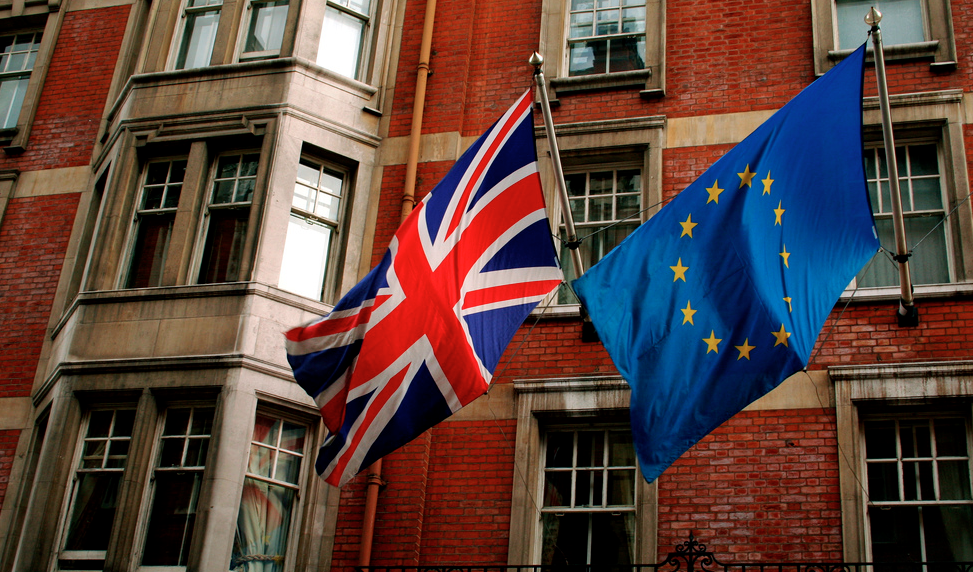Death tax on family farms: A betrayal of Britain’s rural heritage
By willowt // 2025-02-13
Tweet
Share
Copy

- Hundreds of farmers protested in London against Labour's proposed 20% inheritance tax on farms valued over £1 million, set to take effect in April 2026.
- The new tax threatens to end a longstanding exemption that allowed family farms to be passed down without incurring inheritance tax, potentially leading to a "humanitarian crisis" and increased farmer suicides.
- Prominent figures like Nigel Farage and over 150,000 signatories on an e-petition support the farmers' cause, emphasizing the need for the government to reconsider its decision.
- Critics argue that Labour's policies reflect a broader disconnect between the government and rural communities, pursuing a technocratic, globalist agenda that prioritizes synthetic, lab-grown food over traditional agriculture.
- The fight over the "death tax" is about preserving a way of life that has sustained Britain for centuries, and farmers are determined to continue protesting to protect their livelihoods and the future of British agriculture.
A tax on tradition
At the heart of the controversy is Labour’s plan to impose a 20% inheritance tax on farms valued at over £1 million, set to take effect in April 2026. This move ends a longstanding exemption that allowed family farms to be passed down without incurring inheritance tax — a policy that has been a lifeline for generations of farmers. For many, the tax represents more than a financial burden; it’s an existential threat. Alan Hughes, a 36-year-old farmer from the Hereford-Shropshire border, captured the sentiment at a Farmers To Action campaign event: “My fear, like many here, is that I will be the last generation to farm our land. Labour does not want farmers. They want large corporations to produce food, because they know those that control the food we eat, control the nation.” The emotional toll of the policy cannot be overstated. Liz Webster, founder of Save British Farming, warned of a potential “humanitarian crisis,” citing the risk of farmer suicides. “Elderly farmers now know if they die before April next year, there will not be a bill for their farm which is unaffordable,” she said. “Many of them will think, ‘I don’t want to leave my family burdened with an unaffordable debt, they [my family] will lose their home, their livelihood.’”A growing movement
The protest drew support from prominent figures, including Reform UK leader Nigel Farage, who called for the tax to be scrapped entirely. Speaking at a pre-rally event, Farage urged farmers to persist in their campaign: “If this campaign is persistent and peaceful, they can get change.” His words resonated with demonstrators like Nick Mead, who drove his Abbot tank for seven hours to join the protest. “Run your country like a successful business,” Mead said, addressing Prime Minister Keir Starmer. “Don’t just tax everything that is successful. You will drive it out of existence.” The movement’s momentum is undeniable. With over 150,000 signatures on an e-petition opposing the tax and growing public sympathy, farmers are determined to make their voices heard. As one protester, clad in a fur hat and leather jacket, put it: “If the farmers continue, they’ll win. They need the resolve to continue in the same manner, and they will win.”A globalist agenda?
Critics argue that Labour’s policy reflects a broader disconnect between the government and rural communities. John McTernan, a former political secretary to Tony Blair, sparked outrage earlier this year when he declared that Britain “doesn’t need small farmers.” While Starmer distanced himself from the remarks, his government’s actions suggest otherwise. The inheritance tax change, coupled with Labour’s ambitious emissions reduction targets — including a 20% shift away from meat and dairy within five years — has left many farmers feeling betrayed. As farmer Robin Milton observed, “There is absolutely no indication whatsoever of Labour supporting farming.” This sentiment is compounded by fears that the government is pursuing a technocratic, globalist agenda that prioritizes synthetic, lab-grown food over traditional agriculture. The parallels to Margaret Thatcher’s dismantling of the coal industry are not lost on protesters, though the stakes are arguably higher. As one commentator noted, “Food isn’t coal. It has no substitute. We need it to stay alive.”A fight for the future
The battle over the “death tax” is about more than money; it’s about preserving a way of life that has sustained Britain for centuries. Family farms are not just businesses — they are the backbone of rural communities, stewards of the land and a vital link to our agricultural heritage. As the protests continue, the question remains: Will the government listen? Or will it double down on policies that risk driving small farmers to extinction? For now, the farmers are determined to fight — not just for their livelihoods, but for the future of British agriculture. In the words of Liz Webster, “We are really scared that we are going to see a humanitarian crisis.” If the government fails to act, that fear may soon become a reality. This article was written in solidarity with Britain’s farming community. Support local farmers. Buy British. Sources include: TheNationalPulse.com Independent.co.uk TheGrocer.co.uk BBC.comTweet
Share
Copy
Tagged Under:
agriculture organic farming twisted UK freedom tyranny big government farmers insanity money supply revolt globalists death tax resist uprising Inheritance Tax outrage humanitarian crisis liberty finance riot
You Might Also Like
States push back against mRNA injections, announce bans on deadly shots
By Ava Grace // Share
Conspiracy theorists were right about everything – Now what?
By News Editors // Share
By Lance D Johnson // Share
U.K. considers military conscription as Europe faces off against Russia
By Willow Tohi // Share
Deranged leftists call for violence, assassination of Musk and Trump
By News Editors // Share
Recent News
Earth-like soil patterns on Mars reveal clues to the planet’s climate history
By willowt // Share
Virologist who endorsed HCQ for COVID-19 appointed to top pandemic post at HHS
By ramontomeydw // Share










